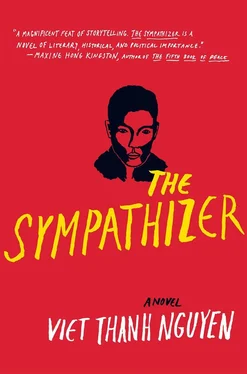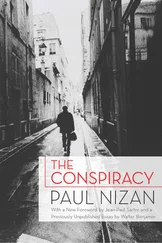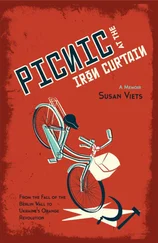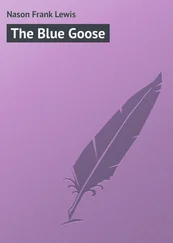And there you have the absurdity. Not that there was not some truth to what the Auteur claimed, for the absurd often has its seed in a truth. Yes, art eventually survives war, its artifacts still towering long after the diurnal rhythms of nature have ground the bodies of millions of warriors to powder, but I had no doubt that in the Auteur’s egomaniacal imagination he meant that his work of art, now, was more important than the three or four or six million dead who composed the real meaning of the war. They cannot represent themselves; they must be represented. Marx spoke of the oppressed class that was not politically conscious enough to see itself as a class, but was anything ever more true of the dead, as well as the extras? Their fate was so inane that they drank away their dollar a day every night, an act in which I gladly joined them, feeling a small part of myself dying with them, too. For I had an encroaching sense of the meanness of my accomplishment, that I had been deluded in thinking I could effect change in how we were represented. I had altered the script here and there, and incited the creation of a few speaking parts, but to what end? I had not derailed this behemoth, or changed its direction, I had only made its path smoother as the technical consultant in charge of authenticity, the spirit haunting bad movies that aspired to be good ones. My task was to ensure that the people scuttling in the background of the film would be real Vietnamese people saying real Vietnamese things and dressed in real Vietnamese clothing, right before they died. The swing of a dialect and the trim of a costume had to be real, but the truly important things in such a movie, like emotions or ideas, could be fake. I was no more than the garment worker who made sure the stitching was correct in an outfit designed, produced, and consumed by the wealthy white people of the world. They owned the means of production, and therefore the means of representation, and the best that we could ever hope for was to get a word in edgewise before our anonymous deaths.
The Movie was just a sequel to our war and a prequel to the next one that America was destined to wage. Killing the extras was either a reenactment of what had happened to us natives or a dress rehearsal for the next such episode, with the Movie the local anesthetic applied to the American mind, preparing it for any minor irritation before or after such a deed. Ultimately, the technology used to actually obliterate natives came from the military-industrial complex of which Hollywood was a part, doing its dutiful role in the artificial obliteration of natives. I realized this, eventually, on the day the final spectacle was supposed to be shot, when, at the last minute, the Auteur decided to improvise with the plentiful quantities of leftover gasoline and explosives. The day before, unbeknownst to me, the special effects wizards had received the Auteur’s instructions: rig the cemetery for destruction. This cemetery had been spared in the original script when King Cong attacked the hamlet, but now the Auteur wanted one more scene illustrating the true depravity of both sides. In this scene, a squad of suicidal guerrillas defiladed amid the tombs, whereon Shamus would call down a white phosphorous strike on the sacred realm of the hamlet’s ancestors, obliterating living and dead with 155 mm shells. I learned of this new scene the morning of its shooting, when the Arc Light strike was originally scheduled. Nope, said Harry. The special effects guys finished prepping the cemetery last night.
I love that cemetery. It’s the greatest thing you built.
You got thirty minutes to take a picture before boom-boom time.
It was only a fake cemetery with its fake tomb for my mother, but the eradication of this creation, in its wantonness and its whimsy, hurt me with unexpected severity. I had to pay my last respects to my mother and the cemetery, but I was alone in such sentiments. The cemetery was abandoned, the crew still having breakfast. Among the tombs now ran a maze of shallow trenches gleaming with gasoline, while bundled to the backs of the headstones were sticks of dynamite and phosphorous. Clusters of smoke bombs were staked to the ground, hidden from camera view by headstones and the knee-high grass that tickled my bare ankles and shins. With my camera slung around my neck I passed by the names of the dead that Harry had written on the tombstones, copied from the Los Angeles phonebook and attached to people presumably still alive. Among these names of the living in this little plaza of the passed, my mother’s name was the only one that genuinely belonged. It was at her headstone I knelt down to say good-bye. The desecration by weather over the past seven months had eroded much of her face in the photographic reproduction, while the red paint with which her name was written had faded to the hue of dried blood on a sidewalk. Melancholy slipped her dry, papery hand into mine as she always did when I thought about my mother, whose life was so short, whose opportunities were so few, whose sacrifices were so great, and who was due to suffer one last indignity for the sake of entertainment.
Mama, I said, my forehead on her headstone. Mama, I miss you so much.
I heard the disembodied voice of the crapulent major, chuckling. Was it just my imagination, or did all the ambient noise of nature cease? In the preternatural calm of my séance with my mother, I thought I might have been successful in communing with her soul, but just when my mother might have whispered something to me, a giant clap of noise ripped the hearing from my ears. At the same time a slap in the face lifted me from my knees and hurled me through a blister of light, knocking me out of focus, one self flying while another self watched. Later, it would be claimed that it was all an accident, the result of a faulty blasting cap that triggered the first explosion, although by then I had decided that it was no accident at all. Only one man could have been responsible for what happened on the set, the man who was so meticulous about every detail that he planned the weekly menu, the Auteur. But at the time of the conflagration, my calm self believed God Himself had struck my blasphemous soul. Through these eyes of my calm self I saw my hysterical, screaming self spread his arms and flail them about like a flightless bird. A great sheet of flame shot up before him, while a wave of heat swept over him with such intensity both he and I lost any sense of feeling. An immense python of helplessness wrapped its smothering grip around us, squeezing us back together into one self with such force I nearly blacked out until my back hit the earth. The meat of my body was now salted, broiled, and tenderized, the world around me afire and stinking of the gasoline sweat emanating from the woolly beasts of black smoke lunging and lurching toward me with ever-mutating faces. Another giant clap tore away the silence clogging my ears as I stumbled to my feet. Meteoritic chunks of earth and rock whizzed by, and I flung one arm over my head and pulled my shirt over my nose and mouth. There was a narrow path through the fire and smoke, and with my eyes blinded by tears and stinging with soot, I ran, yet again, for my life. The shock wave of another explosion slapped my back, an entire tombstone sailed overhead, a smoke grenade tumbled across the path, and a gray cloud blindfolded me. I found my way by avoiding the heat, coughing and wheezing until I reached open air. Still blind, I kept running, hands waving, gasping in oxygen, feeling the sensation a coward always wants to feel and never wants to feel, that he was alive. It was a feeling possible only after surviving a round of Russian roulette with the gambler who never loses, Death. As I was about to thank the God I did not believe in, because yes, ultimately, I was a coward, a blare of trumpets deafened me. In the silence, the earth vanished — the glue of gravity dissolved — and I was propelled skyward, the wreckage of the cemetery blazing before me, receding as I was blown backward, the world passing by in a blurred haze that faded into mute darkness.
Читать дальше












